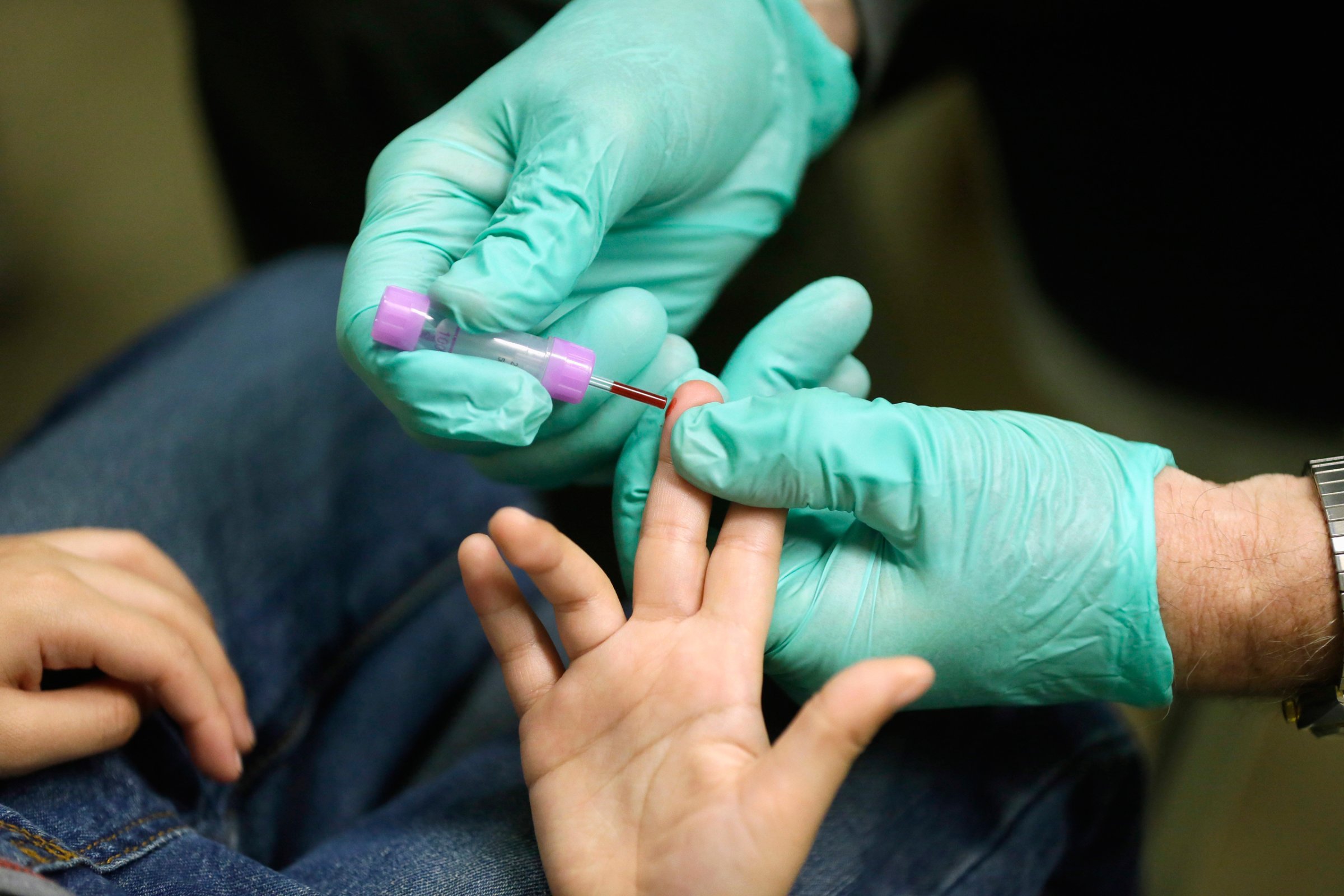
Children under the age of six in Flint, Michigan, were significantly more likely to have elevated levels of lead in their blood following the city’s 2014 switch in water providers, the Centers for Disease Control and Prevention (CDC) said in a report.
The findings—pulled from an analysis of more than 9,000 blood lead tests conducted over three years—help quantify the scale of a public health crisis in the Michigan city. Children under six were about 50% more likely to have elevated levels of lead in their blood after the city began to source its water from the Flint River. Health authorities do not consider any level of lead in the blood to be safe, but levels higher than 5 micrograms of lead per deciliter of blood raises particularly strong alarm.
Blood lead levels have declined since the city switched its water source back to the Detroit Water System following public outcry over the situation. The CDC still recommends children under six in the city have their blood tested for high levels of lead.
More Must-Reads from TIME
- Why Trump’s Message Worked on Latino Men
- What Trump’s Win Could Mean for Housing
- The 100 Must-Read Books of 2024
- Sleep Doctors Share the 1 Tip That’s Changed Their Lives
- Column: Let’s Bring Back Romance
- What It’s Like to Have Long COVID As a Kid
- FX’s Say Nothing Is the Must-Watch Political Thriller of 2024
- Merle Bombardieri Is Helping People Make the Baby Decision
Write to Justin Worland at justin.worland@time.com